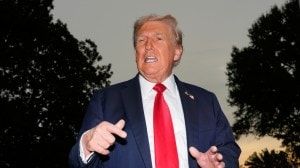FBI warns MIT, other colleges of terror threat
Federal agents are warning leaders at some of the top universities in New England region—such as MIT, Boston College

Federal agents are warning leaders at some of the top universities in New England region—such as MIT, Boston College, and the University of Massachusetts—to be on the lookout for foreign spies or potential terrorists trying to steal their research, the head of the FBI’s Boston office said Monday.
Agents plan to visit many more New England colleges in the coming months and are offering to provide briefings about what they call “espionage indicators” to faculty, students, or security staff as part of a national outreach to college campuses.
“What we’re most concerned about are those things that are not classified being developed by MIT, Worcester Polytech, and other universities,” said Warren T Bamford, special agent in-charge of the FBI’s Boston office. He said colleges are vulnerable to those looking to exploit that information and use it against the US.
The FBI’s website says universities should consider the possibility of foreign spies posing as international students or visitors and terrorists studying advanced technologies and scientific breakthroughs on campus, as well as violent extremists and computer hackers.
“We don’t walk in with the idea we’re are going to stop the free flow of information,” Bamford said.
“The academic community is designed to be open, and we just have to make them aware,” he said. “There are people who would be willing to establish relationships to take secrets.”
Dennis D Berkey, president of Worcester Polytechnic Institute, said he and several other university administrators met Bamford about two weeks ago and welcomed the advice about protecting their unpublished research. For example, researchers shouldn’t leave laptops unprotected in a hotel room in a foreign country, where they could be stolen. Berkey said he puts his own laptop in the hotel safe.
The agents also suggested that professors be wary about who contacts them to talk about their work.
“The general point was,that if there is unnatural or unexplained interest in your research and you’re nervous about it, here’s how to be in touch with us,” Berkey said.
Bamford also recently visited Boston College’s president, the Reverend William P Leahy, said Kevin Shea, Leahy’s executive assistant.
“Boston College was very appreciative of their outreach,” Shea said. He said BC probably would be taking the FBI up on some of its offers of support, but said he did not have details.
Bamford and two other FBI agents have also met University of Rhode Island president Robert L Carothers and Robert A Weygand, vice president for administration and a former Rhode Island congressman.
The agents talked about another danger in foreign hotel rooms—that hackers might break into a professor’s laptop through the hotel Internet system.
The university will consult with researchers and other officials before deciding whether to accept the FBI’s offer of faculty training, Weygand said.
However, John Reinstein, legal director of the American Civil Liberties Union of Massachusetts, questioned the FBI’s presence on college campuses.
“There ought to be some concern about keeping a little bit of distance between the universities and the intelligence community.”
He added that the FBI’s alliance with universities could have a chilling effect on students or researchers.
“Are you going to ask all the questions you want to ask if someone is out there taking notes and reporting to the FBI that you asked the question which they perceived as suspicious?” Reinstein asked.
Lucia Ziobro, acting assistant special agent in charge of the FBI’s counterintelligence branch in Boston, said, “We’re not out there to recruit people and place spies in the academic setting.”
Erik J Dahl, a counter-intelligence specialist and research fellow at the Belfer Center for Science and International Affairs at Harvard University, said, “I don’t think there’s anything wrong with the FBI or other elements of the government reaching out to academia.”
But he voiced doubts about how successful it would be in uncovering plots. “It just doesn’t seem likely that a foreign terrorist or a homegrown terrorist would be getting tips for his next plot on a university campus.”



- 01
- 02
- 03
- 04
- 05



























